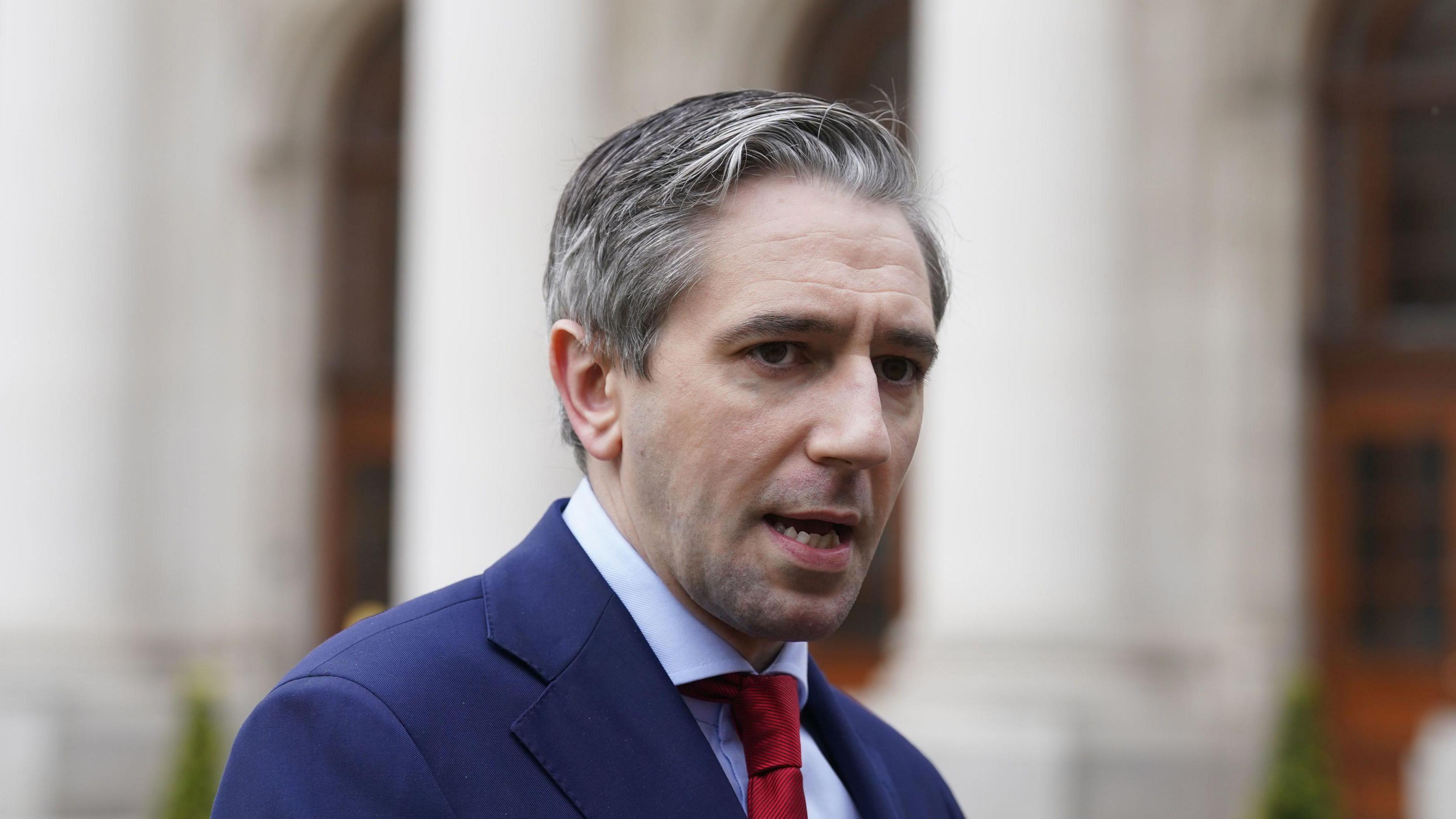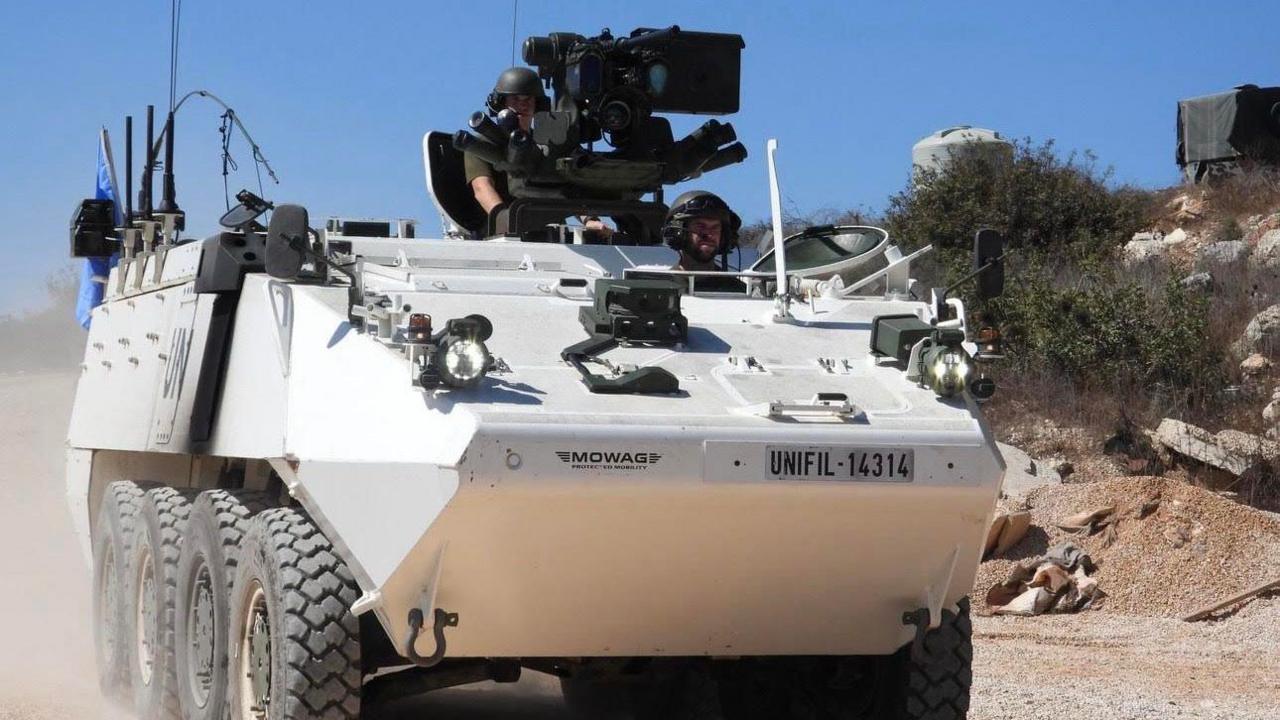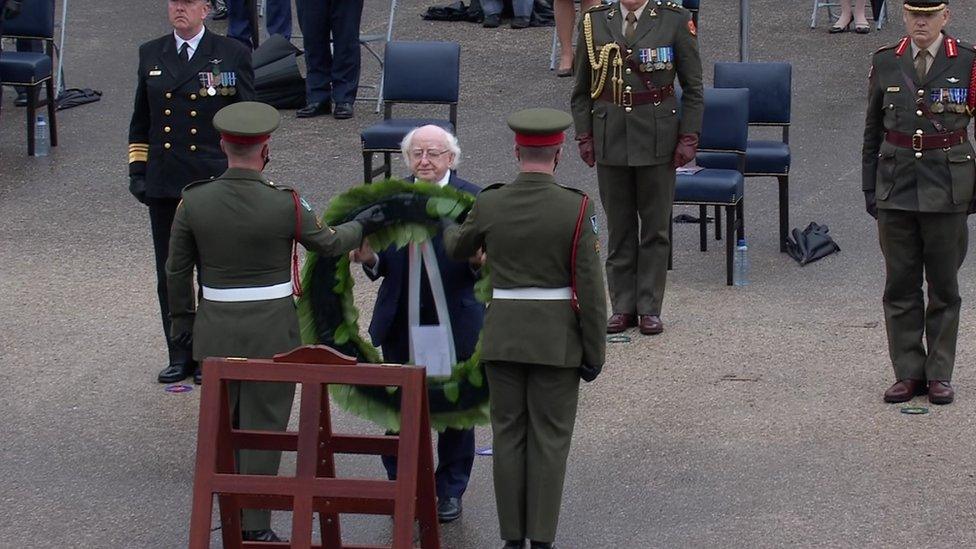Maritime alliance won't undermine neutrality, Harris says

Tánaiste and Minister for Defence Simon Harris said the alliance would "safeguard [Ireland's] maritime domain"
- Published
Membership of a European maritime alliance will not undermine the Republic of Ireland's neutrality, the Irish government has said.
Tánaiste (Deputy Prime Minister) and Minister for Defence Simon Harris has given the Irish Defence Forces approval to formally join the Common Information Sharing Environment (CISE).
The government said CISE enabled more effective operations at sea at a time of new and evolving maritime threats.
As part of the network, the Irish Naval Service can exchange and share information with military and civilian maritime authorities in 10 other European countries.
The Irish government said CISE played a crucial role in increasing awareness of maritime activities and improving responses to growing threats at sea, including physical and cyber-attacks on critical infrastructure, drug trafficking and other illegal activities.
Ireland is joining the group at a time when the country is also establishing its first national maritime security strategy.
Harris said he was confident there were "considerable benefits" from the country's participation.
"It is a key enabler for our Maritime Security Strategy, helping to safeguard our maritime domain, boost our resilience and helping us to contribute with partners at an EU level," he said.

Donnchadh Ó Laoghaire says Ireland's neutrality is its "best defence"
Ireland's main opposition party, Sinn Féin, has raised concerns about the decision.
The party's defence spokesperson, the TD (Irish MP) Donnchadh Ó Laoghaire, said, Harris "must ensure that this sharing of information does not impact in any way on Ireland's neutrality".
Ó'Laoghaire also said the matter had not had "the constitutionally and legally bare minimum level of scrutiny or even oversight from the Oireachtas (Irish Parliament)".
"I will be requesting that the Oireachtas Committee on Defence call on the tánaiste to attend a meeting in order to outline the details of this arrangement and similar arrangements, and to address concerns that such arrangements are further eroding Irish neutrality," he said.
"Irish neutrality allows Ireland to play a positive and constructive role in global affairs, it is our best defence."
'Not about joining a military alliance'
Harris has insisted that the decision does not undermine Irish neutrality.
He said it's a voluntary information sharing arrangement and is not about joining "any sort of military alliance".
The CISE network is overseen by the European Commission with the aim of sharing information around a range of issues such as maritime safety and security, border control, the marine environment, fisheries control, trade, economic interests, and law enforcement and defence.
The decision of the Irish Defence Forces to join the group comes at a time of increasing awareness in the country about potential threats to critical infrastructure including transatlantic communication cables and pipelines along the seabed off the Irish coast.
There are concerns about the potential risk of sabotage by hostile states or international criminals.
The challenges have been exacerbated by what many observers now regard as persistent problems around the operation of Ireland's small naval patrol fleet as well as difficulties around the recruitment of personnel into the navy.
The new Irish government says improvements to maritime surveillance is now "a national defence policy priority".
Related topics
- Published4 March

- Published9 March 2022
